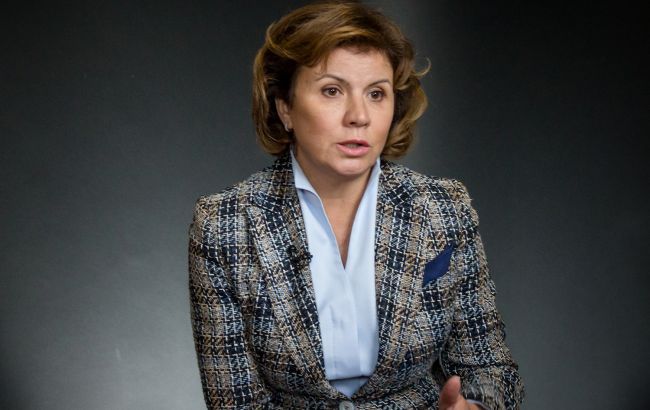EU integration conditions include self-regulating for lawyers through Ukrainian National Bar Association
 Maryna Stavniichuk (photo: apostrophe ua)
Maryna Stavniichuk (photo: apostrophe ua)
The creation of the Ukrainian National Bar Association was once a commitment that Ukraine took on at the beginning of the 1990s at the Council of Europe. Today, the professional organization that unites lawyers is a confirmation of the chosen (and already enshrined in the Constitution) European course, according to Maryna Stavniichuk, a member of the Venice Commission between 2009 and 2013.
According to her, Ukraine applied to join this organization in 1992, and two years later, the relevant political dialogue began. Among the priorities of legal reform, Ukraine committed to defining the status of the legal profession protected by law and establishing a professional association of lawyers.
"During discussions, surveys, and debates, the organized legal community over seventeen years also came forward with the proposal to introduce lawyer self-governance - the creation of a single professional organization based on law. However, many projects that were prepared and discussed eventually 'got lost' in the corridors of parliament," the expert added.
Adapting key European standards of the legal profession's independence and self-governance in national legislation opened the way for the Ukrainian legal profession to integrate into the European professional community.
In June 2005, the President of the Council of Bars and Law Societies of Europe (CCBE), Bernard Vatier, approached the Ukrainian parliament with proposals, among which was the mandatory membership in a professional association. It was about the fact that associations of lawyers had already been created in all CCBE member countries for representing the legal profession in relations with governments and other entities. In most European Union countries, such associations are considered a necessary prerequisite for the independence of lawyers and the provision of quality services.
The Parliamentary Assembly of the Council of Europe (PACE) returned several times to the issue of creating a single professional association of lawyers in Ukraine, Stavniichuk notes. Thus, in Resolution № 1466/2005 Honouring of obligations and commitments by Ukraine, the Assembly, within the framework of adhering to the rule of law and protection of human rights, proposed to the authorities of Ukraine to establish a professional association of lawyers by adopting a new law on the legal profession without further delay.
A similar call to reform the legal profession and create a professional association of lawyers in accordance with the obligation undertaken by Ukraine upon accession to the Council of Europe is contained in Resolution № 1755/2010 The functioning of democratic institutions in Ukraine. This document has already effectively become a stimulus for the preparation of a new basic law. The relevant draft "On the Legal Profession and Legal Activity" (which is now the current law) received a joint assessment in 2011 from the European Commission for Democracy through Law (Venice Commission) and the Directorate General of Human Rights and Rule of Law of the Council of Europe.
"In particular, in the conclusion of these Council of Europe bodies, it was noted that the legal profession tends to be self-regulated and self-governed. Self-governance is deeply rooted as a prerogative of the legal profession. Lawyers implement ethical rules that govern their behavior both in their professional activities and personal lives. The main arguments in favor of self-regulation of the legal profession were named as the necessity to preserve the independence of the legal profession, the independence of the judicial system, and the supremacy of law. This way independence from state interference is guaranteed. And self-regulation was recognized as the most effective and stringent means of regulating the profession," the expert writes.
Stavniichuk also notes that today Ukraine has the newest law in Europe "On the Legal Profession and Legal Activity". It was prepared and adopted as part of European integration. Indeed, its adoption under the condition of creating a professional organization of lawyers with a single membership in the Ukrainian National Bar Association became part of fulfilling Ukraine's obligations to the Council of Europe.
Refusing the chosen model of legal self-governance (and we have already witnessed such attempts over the past decade) carries the denial of the key principle of the independence of the legal profession, which directly affects the protection of rights and fundamental freedoms in Ukraine, she concluded.

